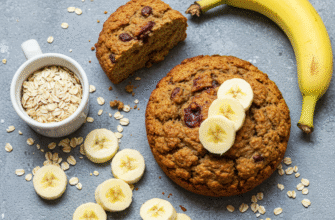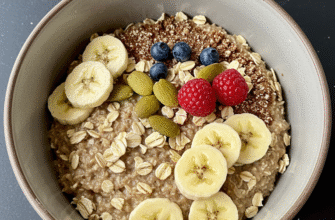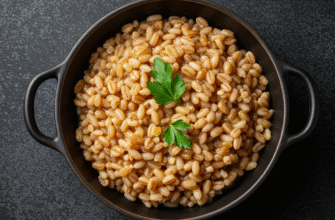For decades, fat got a bad rap. We were told to cut it out, opt for low-fat everything, and view it as the enemy of a healthy lifestyle. But like many things in nutrition, the story is far more nuanced. Not all fats are created equal, and some are not just good for you – they are absolutely essential, particularly when it comes to keeping your brain sharp and functioning optimally. Ditching the outdated fear of fat and embracing the right kinds can make a significant difference in how well your brain works day-to-day.
Your Brain’s Love Affair with Fat
It might surprise you to learn that your brain is the fattiest organ in your body. Seriously! Excluding water, about
60% of the solid weight of your brain is made up of lipids, which is the scientific term for fats. This isn’t the same type of fat you might find elsewhere in the body; it’s highly specialized structural fat that forms the very foundation of your brain cells (neurons).
Think of your brain cells like intricate communication hubs. Each cell has an outer layer, called the cell membrane, which controls what goes in and out and plays a critical role in sending and receiving signals. These membranes need to be flexible and fluid to work properly. And what gives them this vital flexibility? Healthy fats, particularly omega-3 and omega-6 fatty acids. Without adequate amounts of these fats, cell membranes can become stiff and less efficient, potentially hindering communication between neurons.
It’s a fascinating fact: your brain is composed of nearly 60 percent fat. This high concentration underscores the critical role dietary fats play. They aren’t just energy sources; they are fundamental building materials for brain cell structure and integrity. Consuming healthy fats provides the necessary components for maintaining this vital organ.
Meet the Brain-Boosting Fats
So, which fats should you focus on for cognitive well-being? The stars of the show are generally unsaturated fats, which break down into a few key categories:
Omega-3 Fatty Acids
These are polyunsaturated fats, meaning they have multiple double bonds in their chemical structure. They are considered
essential fatty acids because your body cannot produce them on its own; you must obtain them from your diet. The main types relevant to brain health are:
- DHA (Docosahexaenoic Acid): This is the most abundant omega-3 fatty acid in the brain and is a major structural component of the cerebral cortex, the area responsible for memory, language, and attention. It’s crucial for the fluidity of cell membranes.
- EPA (Eicosapentaenoic Acid): While also present in the brain, EPA plays significant roles in supporting blood flow and general cellular health processes.
- ALA (Alpha-Linolenic Acid): Found primarily in plant sources, your body can convert ALA into EPA and DHA, but the conversion rate is often inefficient. It’s still beneficial, but relying solely on ALA might not provide optimal levels of EPA and DHA.
Omega-3s are celebrated for their role in building cell membranes, supporting neuronal communication, and contributing to overall brain maintenance.
Omega-6 Fatty Acids
Like omega-3s, these are also essential polyunsaturated fatty acids. Linoleic acid is the primary omega-6. They are also vital for brain function and cell membrane structure. However, the modern diet often contains an overabundance of omega-6s (found heavily in processed foods and certain vegetable oils like corn and soybean oil) compared to omega-3s. While necessary, an
imbalance skewed heavily towards omega-6s without sufficient omega-3s might not be ideal. The focus should be on achieving a healthier ratio, typically by increasing omega-3 intake rather than drastically cutting omega-6s found in whole foods like nuts and seeds.
Monounsaturated Fats
These fats have one double bond in their structure. Oleic acid, famously found in olive oil, is a prime example. Monounsaturated fats contribute to cell membrane health and are a key component of heart-healthy dietary patterns, like the Mediterranean diet. Good blood flow, supported by a healthy cardiovascular system, is intrinsically linked to good brain function, as the brain requires a constant supply of oxygen and nutrients delivered via the bloodstream.
How Healthy Fats Fuel Your Brainpower
Incorporating these beneficial fats into your diet supports brain function in several interconnected ways:
Building and Maintaining Brain Structure
As mentioned, DHA is literally part of the brain’s structure. Consuming adequate amounts provides the raw materials needed to build and repair neuron membranes. This structural integrity is fundamental for everything your brain does, from basic processing to complex thought.
Supporting Cell Communication
Flexible cell membranes, rich in healthy fats, allow receptor proteins (which receive chemical signals) to function correctly. Think of it like having well-oiled docking stations for neurotransmitters. This efficiency is key for processes like learning, memory formation, and mood regulation. Fats are integral to the myelin sheath, an insulating layer around nerve fibers that helps speed up electrical signal transmission.
Unsaturated fats, particularly monounsaturated fats and omega-3s, are known to support cardiovascular health. A healthy heart and clear blood vessels ensure that your brain receives the steady stream of oxygen and nutrients it desperately needs to function at its peak. Poor circulation can significantly impair cognitive abilities.
Assisting with Nutrient Absorption
Certain essential vitamins, including vitamins A, D, E, and K, are fat-soluble. This means your body needs dietary fat to absorb and utilize them effectively. These vitamins themselves play various roles in protecting brain health and supporting overall neurological function.
Finding Your Fatty Friends: Food Sources
Boosting your intake of brain-healthy fats doesn’t require drastic measures. It often involves simple swaps and additions:
- Fatty Fish: Salmon, mackerel, herring, sardines, and anchovies are packed with EPA and DHA. Aiming for a couple of servings per week is a common recommendation.
- Nuts and Seeds: Walnuts are particularly notable for ALA omega-3s. Flaxseeds, chia seeds, and hemp seeds are also excellent sources of ALA. Almonds, pecans, and other nuts offer healthy monounsaturated fats.
- Avocado: Rich in monounsaturated fats and various vitamins, avocados are a creamy and versatile addition to meals.
- Olive Oil: Extra virgin olive oil is a cornerstone of the Mediterranean diet, prized for its monounsaturated fat content and antioxidants. Use it for dressings and low-to-medium heat cooking.
- Eggs: Especially enriched eggs, can contain omega-3s (check the label), along with choline, another brain-supportive nutrient.
It’s generally best to get these fats from whole food sources, as they come packaged with other beneficial nutrients like fiber, vitamins, and minerals.
The Importance of Balance
While healthy fats are crucial, balance remains key. Consuming excessive amounts of any fat, even healthy ones, contributes to overall calorie intake. Furthermore, the ratio of omega-6 to omega-3 fatty acids is important. The goal isn’t to eliminate omega-6s but to ensure you’re getting plenty of omega-3s alongside them to maintain a healthy equilibrium. This often means consciously adding sources of omega-3s (like fish, flax, chia) while potentially reducing reliance on processed foods often high in less desirable fats and refined omega-6 oils.
Focusing on a well-rounded dietary pattern that includes plenty of fruits, vegetables, lean proteins, and whole grains, alongside these healthy fats, provides the comprehensive support your brain needs for long-term well-being and optimal daily function. Don’t fear the fat – embrace the right kinds, and your brain will thank you for it.
“`









